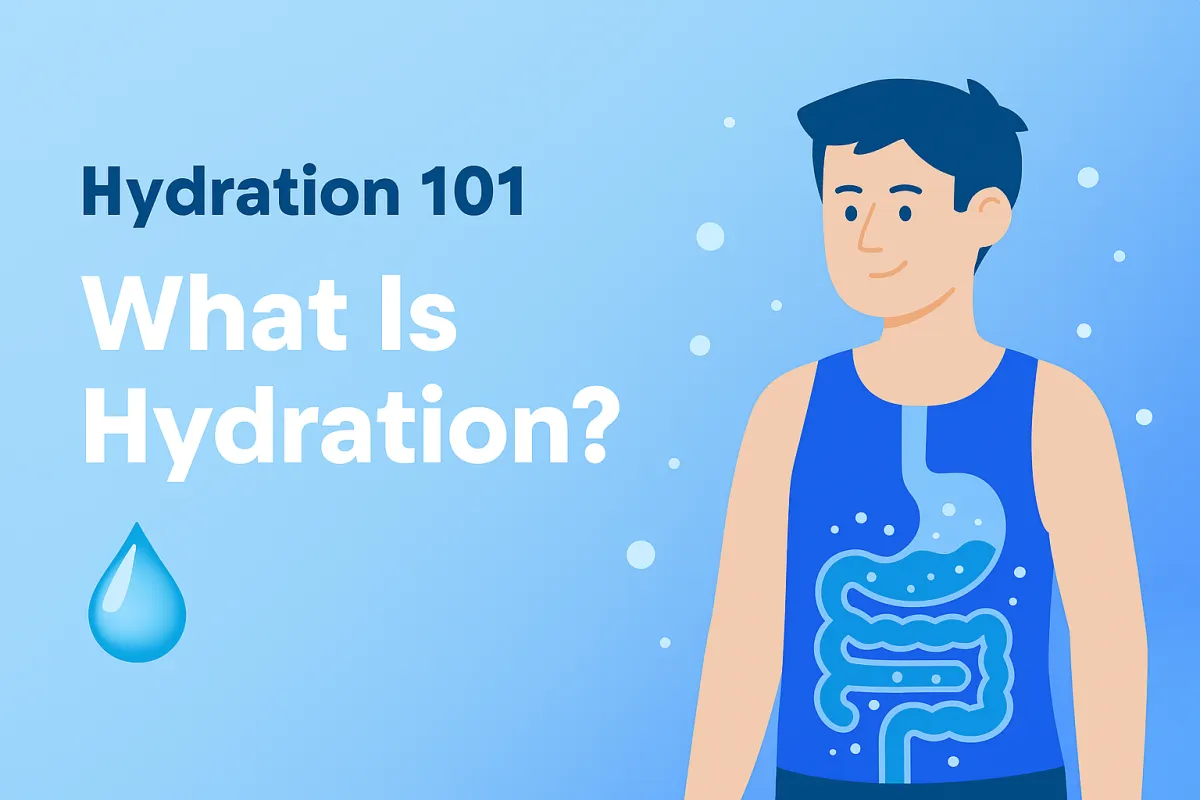
Hydration 101: What is Hydration?
When you think of hydration, you probably think of drinking water—but it’s more than just that. Hydration is about balance: the right amount of water inside your body’s cells, tissues, and organs so everything can function the way it should.
Every cell in your body depends on water. From your brain to your muscles to your skin, proper hydration keeps things running smoothly and helps you feel your best.
What Hydration Actually Means
Hydration is the process of absorbing and maintaining enough water throughout your body.
Since around 60% of the human body is water, this fluid plays a vital role in nearly every system.
When you drink water, it doesn’t just stay in your stomach—it travels throughout your body, delivering nutrients, removing waste, and regulating temperature. You naturally lose water every day through sweat, breath, and bathroom breaks. The key is replacing what’s lost to keep your body in balance.
In short: Hydration isn’t just about how much you drink—it’s about keeping your body’s fluid levels balanced so it can perform at its best.
How Water Supports Body Functions
Water is your body’s hidden superhero. Here’s what it does behind the scenes every day:
Regulates body temperature: When you get hot, you sweat. As sweat evaporates, it cools your body, keeping your internal temperature stable.
Supports digestion: Water helps dissolve nutrients so they can be absorbed efficiently. It also keeps your digestive system moving smoothly, preventing constipation.
Cushions and lubricates joints: Your joints are surrounded by fluid-filled sacs that act like shock absorbers. Without enough water, you might feel stiffness or soreness.
Boosts circulation: Blood is over 90% water, and proper hydration helps your heart pump more easily, delivering oxygen and nutrients throughout your body.
Cleanses your system: Water helps your kidneys filter toxins and waste products out of the bloodstream—supporting overall health and energy.
Enhances focus and mood: Even mild dehydration can impact memory, mood, and concentration. Staying hydrated keeps your brain sharp and balanced.
Think of water as your body’s built-in maintenance system—it fuels, protects, and cools everything from head to toe.
Signs of Proper Hydration vs. Dehydration
Your body has built-in signals that tell you how hydrated you are. Here’s how to spot the difference:
When You’re Well Hydrated
You feel energized and focused
Your urine is pale yellow or almost clear
Your skin feels soft and elastic
You rarely feel thirsty
You recover quickly after activity
When You’re Dehydrated
You feel tired, dizzy, or sluggish
Your mouth or lips feel dry
Your urine is dark yellow or amber
You experience headaches or muscle cramps
You have trouble concentrating
Even mild dehydration—just a 2% loss of body water—can impact mood, focus, and physical performance. The sooner you recognize the signs, the quicker you can recover.
The Bottom Line
Hydration isn’t just a wellness trend—it’s a foundation for feeling good, thinking clearly, and performing your best.
Every sip of water supports your body’s systems, helping you move, think, and feel better every single day.
So the next time you reach for your water bottle, remember: you’re not just drinking water—you’re giving your body the fuel it needs to thrive.
Try This: Weekly Hydration Check-In
Take note of how often you drink water and how your body feels by the end of the day.
Do you feel clear-headed? Energized? Or sluggish?
Start small—aim to drink a little more water today than you did yesterday.